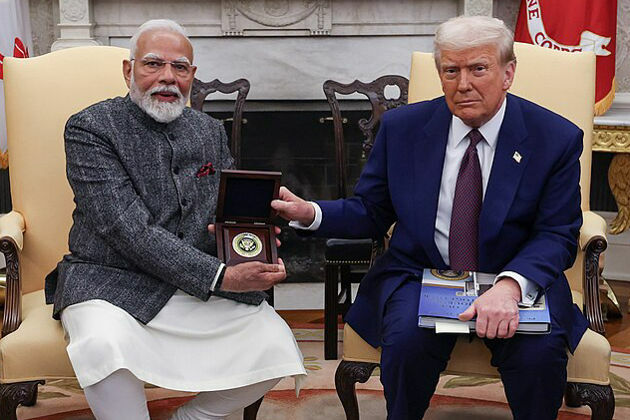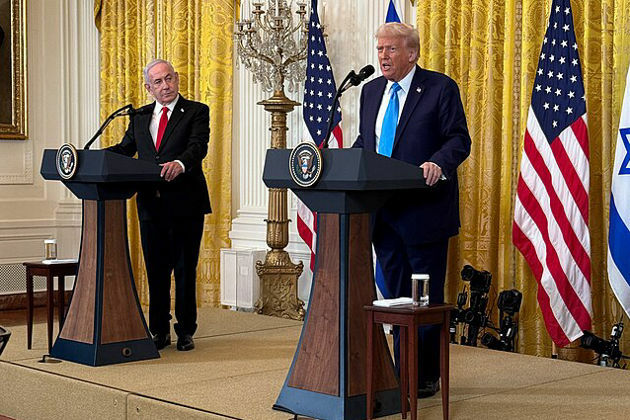When will India have its UPI Moment in cross-border payment
ANI
07 May 2021, 15:25 GMT+10

New Delhi [India], May 7 (ANI/Mediawire): India is a multi-faceted nation in more aspects than one can count. As a Fintech entrepreneur who is a little bit tongue in cheek, I always point to our domestic versus cross-border payments dichotomy as the most glaring example of how right we can get it when we try. And how wrong it can go when we don't.
Prajit Nanu, CEO and Co-Founder, NIUM said, "Domestic payments in India, for as long as most millennials will remember, have been a breeze. The fact that most users do not know or care about what goes on behind the scenes in Unified Payments Interface (UPI) or Immediate Payments Service (IMPS), or their wallet of choice, is the truest testament to how well we have done.
Success in payments is defined by how inconspicuous and invisible they can become. So imagine how miserably we must have failed at cross border for the average customer to know what a "reason code", SWIFT, Form A2 etc are. To be precise, it is not like they understand it. Rather, they are forced to deal with all of this complexity because they find themselves in need of moving money abroad.So what made cross-border the neglected stepchild of payments in India? As the CEO of a leading global fintech, I want to see India move in the right direction here. And to do so we must begin with an honest assessment of what is low hanging and what isn't.Yes, part of the problem is genuine, and hence much harder to solve. INR as a currency is only partially convertible, unlike say, the US Dollar which can be traded without any limitations imposed by monetary authorities. What this translates into in real life, is that INR can only be traded deliverable on-shore, is not 24X7 and most importantly has different restrictions on how much and for what purposes it can be "sent out".
Corporates encounter this in different ways than retail individuals. The latter for instance, see restrictions in the form of USD 250k being their LRS limit. For Corporates, basic currency hedging becomes a highly paper heavy and cumbersome process. SMEs too very often find themselves debating the merits of hedging vs the administrative load it places on their finance teams. There has been talk of easing these restrictions and let's just say it's been a bumpy road.But this is where regulation also has the power to fix what is salvageable. And unfortunately, it has not. In the last 5 years, regulators around the world seem to be waking up and doing their bit to level the field when it comes to x-border Fintech. Sure, some are trailblazers like the FCA in the UK, but even those late to the party (LatAm, MENA etc.) are doing their bit by creating regulation that enables the Fintech ecosystem to fill the gaps in the x-border landscape. Making these payments more digitised, transparent, cheaper, quicker needs more than just banks to shoulder the load. Nium reaches 180 countries when it comes to moving money and we have seen first-hand what healthy competition from Fintechs can do for the ecosystem and consequently for the end customer. India for some reason has lagged here. Our AD-II and FFMC regulations are archaic and in much need of a drastic overhaul.
To date, settlement of any ticket size of x-border is the ringfenced remit of banks as AD-Is. The next best license, AD-II is not nearly potent enough to meet actual business and customer needs, and yet is virtually impossible to get without going through multiple hoops. One of which, by the way, is the need to have at least one physical branch. For digital first players, you can see why that's not only problematic, but also unnecessary and off-message.
India is almost unparalleled in its domestic payments sophistication, partly because we had some breakthrough players, but also because regulation and the ecosystem stepped up when they had to.
Our x-border ethos is in dire need of the same. There are great examples of Fintech friendly license regimes in the world and we now have the luxury of choosing from best practices. Countries with restricted currencies both in and outside APAC have found a balance between monetary policy and de-throttling of international payments. India needs a more nuanced framework for assessing payment types within both its capital and current accounts. For starters, a lot more use cases than just travel and education should be opened up to Fintechs on the current account side of things.
Capital account transactions are admittedly trickier but given we have created a thoughtful framework like LRS, I see no reason to keep Fintechs out of the fray. An intelligent risk-based filtering on transaction size, purpose and corridor would serve us well. Fintechs have already optimised for small to medium value, high volume transactions because they are technology native. Banks' compliance and operations teams are better suited to high value traffic and that means the little guy is usually left disgruntled and unhappy.
In short, if we have any hope of bridging the gap between the sophistication of our domestic payments ecosystem and the train-wreck that is our cross border setup, we need to truly let the Fintechs in. We need to upgrade regulation, create licenses tailored to Fintechs and what they can do best. Banks won't lose here. You won't see their prized cash cows moving their business to a Nium. But what you will see are retail customers, SMEs and smaller corporates heaving a sigh of collective relief that sending an INR outward no longer feels like a punishment."Nium is a next-generation financial services platform that enables companies around the world to unlock new revenue opportunities and improve cash flow economics. This story is provided by Mediawire. ANI will not be responsible in any way for the content of this article (ANI/Mediawire) Share
Share
 Tweet
Tweet
 Share
Share
 Flip
Flip
 Email
Email
Watch latest videos
Subscribe and Follow
Get a daily dose of Indianapolis Post news through our daily email, its complimentary and keeps you fully up to date with world and business news as well.
News RELEASES
Publish news of your business, community or sports group, personnel appointments, major event and more by submitting a news release to Indianapolis Post.
More InformationBusiness
SectionEngine defect prompts Nissan to recall over 443,000 vehicles
FRANKLIN, Tennessee: Hundreds of thousands of Nissan and Infiniti vehicles are being recalled across the United States due to a potential...
Microsoft trims jobs to manage soaring AI infrastructure costs
REDMOND, Washington: Microsoft is the latest tech giant to announce significant job cuts, as the financial strain of building next-generation...
Stocks worldwide struggle to make ground Friday with Wall Street closed
LONDON UK - U.S. stock markets were closed on Friday for Independence Day. Global Forex Markets Wrap Up Friday with Greeback Comeback...
Nvidia briefly tops Apple’s record in AI-fueled stock rally
SANTA CLARA, California: Nvidia came within a whisker of making financial history on July 3, briefly surpassing Apple's all-time market...
ICE raids leave crops rotting in California, farmers fear collapse
SACRAMENTO, California: California's multibillion-dollar farms are facing a growing crisis—not from drought or pests, but from a sudden...
Trump signals progress on India Trade, criticizes Japan stance
WASHINGTON, D.C.: President Donald Trump says the United States could soon reach a trade deal with India. He believes this deal would...
International
SectionTragedy in Spain: Diogo Jota and his brother die in car accident
MADRID, Spain: Liverpool footballer Diogo Jota and his younger brother, André Silva, have died in a car accident in Spain. Spanish...
Early heatwave grips Europe, leaving 8 dead and nations on alert
LONDON, U.K.: An unrelenting heatwave sweeping across Europe has pushed early summer temperatures to historic highs, triggering deadly...
U.S. military, China, Russia in Space race
President Donald Trump's plans to build a space-based Golden Dome missile defense shield have drawn immediate criticism from China,...
Trump wins $16 million settlement from Paramount over CBS Harris edit
NEW YORK CITY, New York: Paramount has agreed to pay US$16 million to settle a lawsuit brought by U.S. President Donald Trump over...
British PM faces major party revolt over welfare reforms
LONDON, U.K.: British Prime Minister Keir Starmer won a vote in Parliament this week to move ahead with changes to the country's welfare...
White House meeting between Trump, Netanyahu on July 7
WASHINGTON, D.C.: President Donald Trump will meet Israeli Prime Minister Benjamin Netanyahu at the White House on Monday. President...













